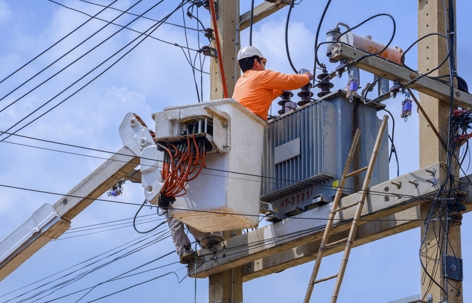Working as a utility worker during hurricane season comes with significant risks. From harsh weather to electrical hazards, these challenges demand a strong focus on safety and preparedness. Below, we outline the critical steps utility workers should take to protect themselves and ensure they understand their workers' compensation rights.
Identifying Risks and Challenges for Utility Workers
Understanding the Unique Risks
Hurricane conditions expose utility workers to dangers like electrocution from live wires, falling debris from damaged infrastructure, and contaminated floodwaters. Working in these high-stakes environments also means facing additional risks such as overexertion and unsafe conditions caused by aging infrastructure. Addressing these risks requires proper training and adherence to safety protocols.
Weather Impact Analysis
Accurate weather predictions allow utility workers to better prepare for storms. Using weather data, teams can identify dangerous time windows, redistribute work schedules, and shore up safety equipment supplies. Continuous updates and real-time communications are vital in helping workers adapt to unpredictable conditions and maintain safety.
Safety Protocols
Effective safety programs include routine risk assessments, strict protocols for personal protective equipment (PPE), and robust communication systems. Following these measures can minimize accidents during electrical repairs or storm cleanup.
Key Safety Essentials:
- Regular use of waterproof PPE
- Properly grounded electrical tools
- Real-time updates on weather and worksite conditions
Comprehensive Guide to Workers' Compensation
Eligibility and Coverage
Workers' compensation supports injured utility workers by covering medical costs, rehabilitation, and lost wages. However, working in hurricane-affected areas can complicate eligibility requirements. Utility workers should familiarize themselves with state-specific policies to maximize coverage and understand any disaster-related protections.
Filing a Claim
Reporting injuries promptly and keeping detailed documentation are vital for utility workers filing workers' compensation claims. Critical information includes medical records, account details of the incident, and witness statements. Filing within the allowable timeframe ensures eligibility for benefits.
Legal and Financial Implications
Utility workers have the right to workers' compensation, but should be aware of benefit limits and legal nuances. Employers must comply with insurance regulations to avoid penalties. Understanding these details empowers workers to make informed claims.
Strategies for Safety Preparation and Response
Pre-Hurricane Season Planning
Preparation starts with risk assessments and worker training on managing potential hazards. Equipped emergency kits, tested communication systems, and inspections of critical tools are essential steps. This proactive approach helps utility workers operate safely and efficiently even in extreme conditions.
During the Storm
Utility workers should strictly follow safety protocols, use designated equipment, and monitor evacuation orders. Reliable communication allows for quick response to hazards and coordination with emergency services.
Post-Hurricane Operations
After the storm, utility workers face dangers such as downed power lines and hazardous debris. To maintain safety, it’s vital to reassess each work area, use proper techniques for handling live wires, and ensure workers adhere to established cleanup protocols.
Legal Guidance for Workers' Compensation in Columbia, SC
Utility workers deserve a workplace that prioritizes their safety and rights. Injured on the job during hurricane season? Smith Born Leventis Taylor & Vega, LLC is here to help. Our experienced team in Columbia, SC, specializes in workers' compensation claims, ensuring you get the support and representation you need. Contact us today through our online contact form or call (803) 599-2207 to schedule a consultation.

